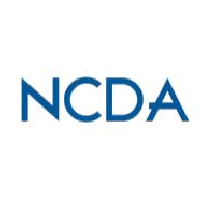
微信客服
wholerenguru3 (厚仁学术哥)

“可选择不提交考试成绩”,而不是“无视考试成绩”

学校仍欢迎提交成绩
你的竞争力
我们最好的建议
Does “Test Optional” Really Mean Tests Don’t Matter? No.
Colleges, particularly the top ones, have always stated that they focus on holistic evaluation of college applications. However, in my time working within colleges and universities, I have never seen an East Asian student with standardized test scores lower than 1500. So despite holistic evaluations that look at co-curricular and extracurricular activities, it was clear to me that for East Asians, testing matters despite holistic evaluation processes.
With COVID-19 and schools going test optional, colleges and universities are focusing more heavily on sharing the importance of holistic evaluations. This is well and good because surely, some of us just perform worse than others on standardized tests. But, is test optional truly test optional? I would argue no. Let me share why I come to this conclusion.
Test Optional, not Test Blind
If the scores had absolutely no bearing on your application, the schools would become test blind (ilke the University of California will do in 2023). Being test blind would mean that test scores would have no impact on whether or not a student will be admitted and instead, evaluation will focus on other critical parts of an application: the essays, letters of recommendation, transcript, etc. However, during this cycle, schools remain test optional so if scores are submitted, they will be reviewed and one would be naive to assume they do not mean something to the application.
Scores are still welcome
Despite seeing so many high school college counselors plead with universities to just tell students “do not submit test scores”, colleges and universities have steadfastly refused to do this. While admissions representatives from over 400 institutions have gone so far as to sign an agreement (https://www.nacacnet.org/news–publications/newsroom/test-optional-means-test-optional/) that states “test option is truly test optional” and students would not be penalized for not submitting test scores, they still have not said “no need for anyone to take them.” The only logical conclusion to be drawn is that while you might not be penalized for missing test scores, you could be advantaged, in however small a way, if you have them and they are stellar scores. And for international Chinese students who have a stiff competition pool at the top schools, any advantage is important.
Furthermore, NACAC (the National Association for College Admission Counseling) has continually argued that the SAT/ACT create a disparity in access and with COVID-19 (https://www.insidehighered.com/admissions/article/2020/08/18/nacac-issues-report-standardized-testing-admissions), this is not only more pronounced but forces students into stressful situations with test cancellations, preparations that may have no consequence (if they cannot ever take a test), and health risks. Even with these strong arguments, there is currently still no move for institutions to become test blind begging the question of “why” submitting a test is still an option.
Your Competition
Let’s take two students. Both are similar, with the same ethnic or racial background, from the same country, same basic extracurricular involvement, and same GPA. Both are called ‘hard working students’ in their teacher recommendations. Sure, maybe one might be more outgoing than the other, but with essay editing help and mock interview training, an admissions committee would not know otherwise. Suppose, though, for all their similarities, they apply to the same school and one has an SAT score of 1550 but one chose not to take the SAT so they have no standardized test score. Logically, who do you think will be admitted? They are virtually the same type of candidate, but one has a proven test that admissions offices have historically believed to offer predictive value in determining college success. Thus, while the student without the SAT score is not punished for the missing test per se, the one with the 1550 is more likely to gain an advantage against their competitor in this application pool.
Our Best Advice
Unless there are sweeping reforms soon where institutions completely become test blind, test scores can still, seemingly, make some difference. While students will not be punished for not having test scores, if their competition does and the score is excellent, it would appear that they would have an advantage. What is a ‘bonus’ for this year though, is if you were to take the SAT/ACT this year and score terribly despite studying. You could then choose not to submit those scores, perhaps giving yourself a slight ‘advantage’ over previous years when admissions officers would see your low score. Our best advice: take them if possible and safe for you. Because odds are, you have someone competing for the same spot at your dream school who will be taking the test.
美国招生协会
AIRC权威认证
80位
美国双语导师
10年+
名校申请经验
8600+
名校名企录取

微信客服
wholerenguru3 (厚仁学术哥)



























